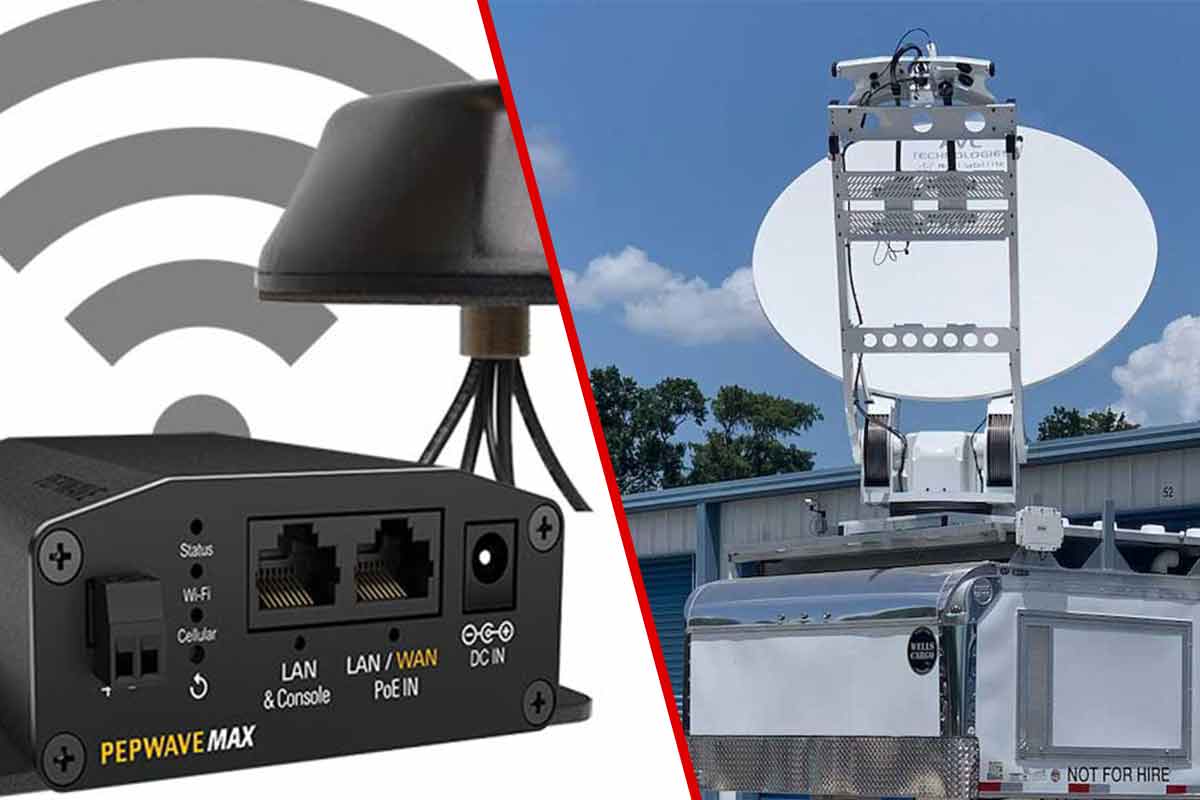The Differences Between Cellular and Satellite Internet

With a company name like Expedition Communications, everyone knows that we sell mobile satellite antennas and provide satellite internet service. What many people don’t know is how satellite internet is different from cellular internet, and when each solution is best.
If you have talked to a Expedition Communications representative before, chances are they asked you a few questions about your travel habits, the type of vehicle you are traveling in, your internet data usage habits, and more. It may seem like small talk, but each of these questions is critically important to ensure you get a system that will work great for your needs and not leave you disappointed.
Average Data Speeds
As long as you are in a good part of the network, cellular internet speeds are going to beat out satellite speeds. Not only are average speeds much faster, but latency is also significantly lower. The average latency for a satellite internet connection is a whopping 550 milliseconds, while cellular internet latency averages around 100 milliseconds.

Of course, depending on your price point, satellite internet packages can have very generous amounts of throughput. These are often not consumer-grade plans however, and still have the latency issue to contend with. Both satellite and cellular internet are restricted based on the contention rate of the network, so speeds are variable depending on how many other users you’re sharing with.
Internet Service Area
What satellite internet lacks in average data speeds it makes up for in service area. Simply put, if you have a view of the southern sky, you will have access to a reliable internet connection. This is in stark contrast to the cellular network. On the largest network in the United States, only about 70% of land area is covered. This is not a problem if you are traveling in populated areas, as their network covers 99% of homes, but when traveling remote cellular internet coverage may be nonexistent.

The iDirect satellite network 
The Verizon cellular network
When comparing satellite internet and cellular internet, you must think about your needs. How often do you travel “off the grid”? Are you able to adjust your travels to stay within the cellular footprint? How important is it for you to always have internet access, or is a few days disconnected not a big deal? Answering these questions will help narrow down which of the two options is best for you.
Vehicle Size
There is no way around it, satellite equipment is big. In addition to a router and modem that must go inside of your vehicle, the satellite antenna must be mounted on your roof. These antennas usually range from about 3 feet to 4 feet in width and raise eight inches or more from a vehicle even when in their stowed position. They are not particularly lightweight either- an 85-centimeter antenna (our entry-level satellite system) weighs about 100 pounds. This is enough to compromise the integrity of a roof that is not reinforced, requiring additional labor to install it on the corners where the vehicle’s frame can bare the weight.

A DataSat HNS-RV deployed on a mobile home. 
A DataSat HNS-RV stowed on a mobile home. 
A DataSat 960 on an Airstream.
Cellular equipment, by contrast, is tiny. The enterprise-grade cellular router we provide is only a few inches, and the external antenna is low profile as well (about eight inches by eight inches). Most any vehicle can make a cellular system work, but only certain vehicles can make a satellite system work.
Price Point
Now the most important question- what do satellite internet and cellular internet cost? Well, satellite internet is much more expensive. The most affordable consumer satellite antenna sold in North America is our own RVDataSat 840, coming in at around $7,000. Installation can also run an extra $1,000 to $2,000 if we are traveling to your location, and satellite internet service is often more expensive than cellular service.
Service plans are often more expensive for satellite internet too, especially on networks that are not highly contented with reasonable data speeds. In general, the per-gigabyte cost of cellular internet is far lower than that of satellite internet.
Don’t let the cost dissuade you- if you need satellite internet, you need satellite internet. For remote business owners that travel and need constant, reliable connectivity no matter where they are, satellite internet is the only viable option. We will not hesitate to recommend cellular internet when it works for a customer’s needs, but are very reluctant when they meet the requirements for satellite internet and simply won’t be satisfied with what cellular will provide.
In Conclusion
Satellite internet may be more expensive than cellular, but it is the only real connectivity option for many people. Before deciding on satellite internet or cellular internet, really think through your needs. Cellular internet will not always be available, especially for those traveling frequently through uninhabited areas. When it is available, it will be higher quality- but what do you lose if you are disconnected for a while, outside of the cellular range? Both satellite and cellular internet are great options for different types of customers, with some deciding on a hybrid internet solution with both satellite and cellular. If you need some assistance deciding on your best course of action, give our sales team a call or shoot them an email so they can recommend the system that is best for you.




